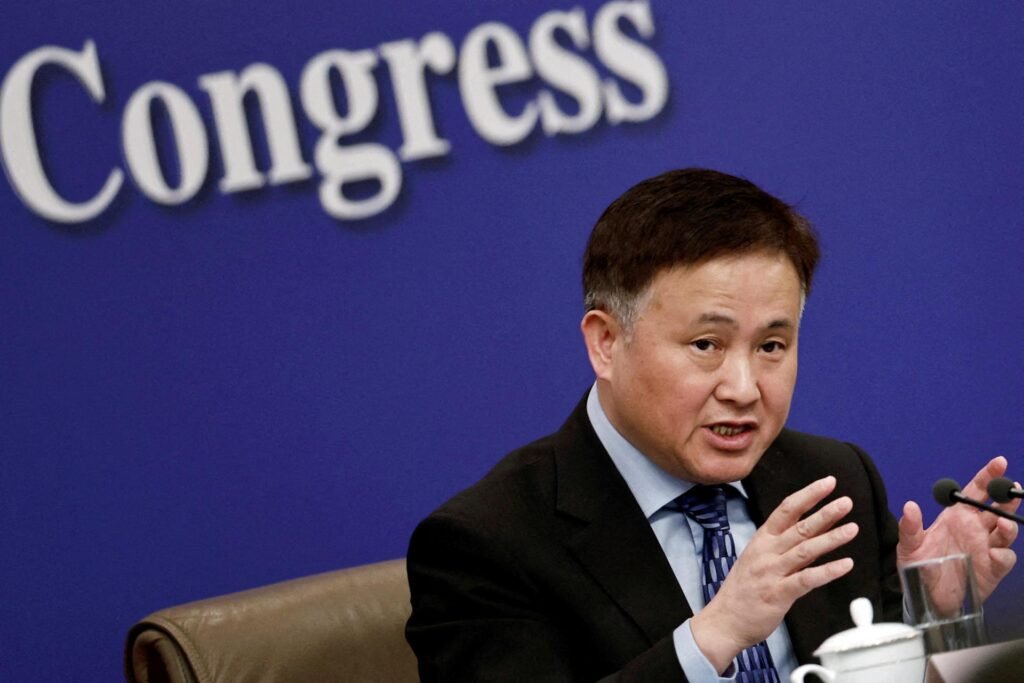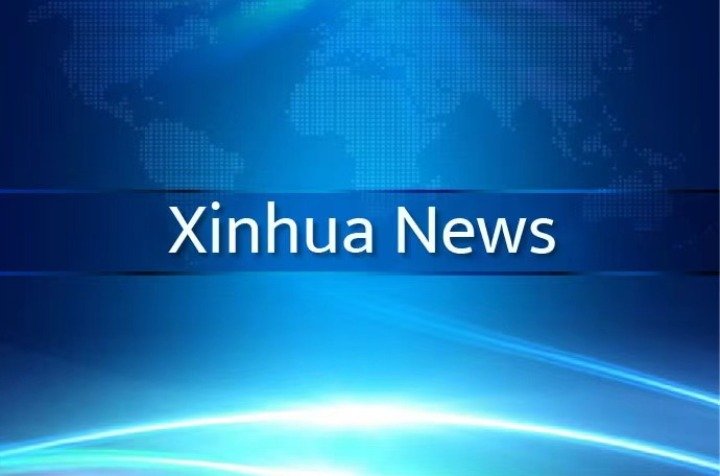
China is in talks with Japan and South Korea — both U.S. allies — about a possible trilateral currency swap to bolster the region’s financial safety net and deepen economic cooperation amid US President Donald Trump’s trade war, according to a source familiar with the issue.
Pan Gongsheng, governor of the People’s Bank of China (PBOC), touched on the issue with his South Korean and Japanese counterparts, Rhee Chang-yong and Kazuo Ueda, on the sidelines of the IMF-World Bank annual meetings in Washington last week, the source said.
“They have been pushing for trilateral cooperation, with talks going on for a while,” the person said on the condition of anonymity.
Currency swaps are an often-used tool between central banks to provide local currency liquidity. It can also offer financial relief during debt crises on top of rescue operations by multilateral institutions.
The policy discussions come amid a long-standing bid by China to boost the overseas use of the yuan in order to counter the U.S. dollar and promote a free trade deal among the three East Asian nations, whose combined economic size accounts for a quarter of the world’s total.
South Korea and Japan, both close U.S. allies that have also been ravaged by high tariffs from Washington, are China’s fourth and sixth largest trading partners in terms of 2024 trading value.
It remains unclear how a China-Japan-South Korea currency deal could be forged and if it would fall under the Chiang Mai Initiative, a multilateral currency swap arrangement launched in May 2000 that also includes 10 Southeast Asian nations.
More discussion of such cooperation could unfold on the sidelines of the coming Association of Southeast Asian Nations (ASEAN) and Asia-Pacific Economic Cooperation (APEC) summits.
The PBOC did not respond to the Post’s request for comment.
In an online statement last week, the Chinese central bank said without elaborating that the three governors exchanged views on recent economic and financial developments.
Another source said that the currency swap discussions have been in the works, but the most likely outcome would be bilateral agreements among the three nations.
China’s five-year currency swap with South Korea, totalling 400 billion yuan ($56.18 billion), is set to expire this month. Beijing signed a three-year bilateral swap, totalling 200 billion yuan, with the Bank of Japan in October 2024.
The South Korea-Japan currency swap was restored in December 2023, with a size of $10 billion and a duration of three years.
In a statement submitted to the International Monetary and Financial Committee last week, Pan warned that there is a “pressing need” to strengthen the global financial safety net, saying trade tensions are undermining global financial stability.
China has signed such a currency swap with 32 central banks worldwide, totalling 4.5 trillion yuan as of the end of September, including 350 billion yuan with the European Central Bank that was renewed in September, and a 3.5 billion yuan five-year swap renewed with Iceland in Washington last week.
“The currency swap network established by the People’s Bank of China has already become an important part of the global financial safety net,” an official with its macro prudential supervision bureau was quoted as saying last week by Financial News, a newspaper affiliated with the central bank.
“In the future, the central bank will systematically expand the scope of currency swap cooperation, focusing on deepening cooperation with countries and regions with close economic and trade ties with China, effectively utilising swap funds, increasing liquidity supply, and promoting trade and investment facilitation,” the anonymous official added.
Read the article at SCMP.






